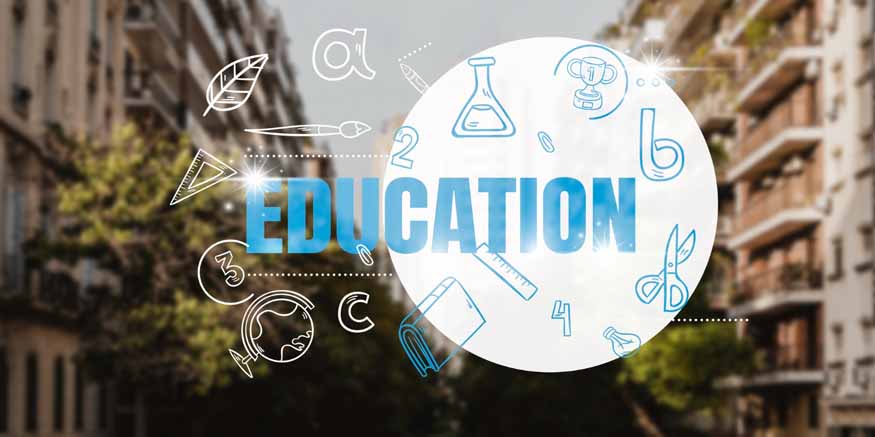Education is the key component of a child’s growth since it influences their future and teaches them important abilities and values. Parents must make a crucial and smart decision while choosing the best school for their children. We will start to travel through the EuroSchool admissions process today and also the preparation for admission.
Also Read: Age Limit for Admission in Class 1 in CBSE
Tips for parents to make admission interviews successful:
Here are the important key tips for parents to make admission interviews successful for shaping their kids ’ future.
1. Pre-Application Preparation:
The first step for Preparation for admission is that parents and students are to research and gather information about Euro School. This is about learning about the institution’s educational programs, facilities, extracurricular activities, public image, and admission standards. Parents frequently visit the school’s website, attend meetings, and ask current or past students and their parents for suggestions.
2. Submission of Application:
With the pre-application requirements fulfilled, parents can proceed to submit the application form to Euro School. Parents can get the application form from our Euro school’s website or receive it in person from the admissions office. The application form often includes information about the student’s personal details, parents, academic history, and other information.
3. Eligibility Criteria:
The Euro School establishes clear eligibility criteria for different levels, such as pre-primary, primary, middle school, and high school. These criteria often include age requirements and previous academic performance.
4. Entrance Examination (if applicable):
Euro School may require students to take an entrance examination depending on the grade level for which admission is liked. This test checks a student’s knowledge and talents in essential subjects such as maths, physics, and language. The goal of the exam is to check the student’s educational preparation and verify the educational standards of the institution.
5. Interaction and Interview:
In addition to the entrance examination, the Euro School values personal interactions with prospective students and their parents or guardians. The school’s admission board may conduct interviews to learn more about the student’s interests, hobbies, extracurricular activities, and general behaviour. This step helps assess the student’s fit with the school’s ethos and values.
6. Parental Interaction:
The school may also conduct a separate meeting with the parents or guardians to understand their expectations, aspirations, and commitment to their child’s education. This engagement is essential as Euro School believes in a strong partnership between parents and educators for a child’s holistic development.
7. Merit and Diversity Considerations:
Euro School aims to maintain an academic community that includes students from different social, financial, and cultural backgrounds. While academic quality is crucial, the school also values difference as an essential aspect of the learning experience.
8. Seat Allocation and Notifications:
Based on the performance in the entrance examination, interview, and other assessment criteria, the school prepares a merit list or selection list. Seats are allocated to successful candidates, and parents or guardians are notified about the admission results through emails or official letters.
9. Acceptance of Admission:
Parents or guardians of selected students are required to confirm their acceptance of the offered seat within a specified period. They are typically required to pay the admission fees and complete other formalities, such as submitting medical certificates and undertaking to abide by the school’s rules and regulations.
10. Waiting Lists and Second Rounds:
In case of any remaining vacant seats, the school may create a waiting list of eligible candidates. If any selected student declines the offer or fails to complete the admission formalities within the stipulated time, the school may offer the seat to a candidate from the waiting list.
Also Read: How to Get into a Good College in India
Documentation Details:
- The completed and signed application form is the first step of the admission process. This form collects essential details about the student, parents or guardians, and contact information.
- As confirmation of age and identification, a duplicate of the student’s birth certificate is required.
- The records or report cards from the student’s previous schools are required for analysing academic achievement and growth.
- A Transfer Certificate provided by the previous school is necessary if the student is transferring from another institution. This document verifies the student’s participation and attendance record.
- Some schools may request a conduct certificate from the previous school, indicating the student’s behaviour and discipline record.
- Any government-provided identification document, such as an Aadhar card, passport, or ration card, is required for verification purposes.
- You can submit a utility bill such as an electricity, water, gas, or rental agreement that is commonly requested as proof of residence.
- Some schools may need a medical certificate from a doctor confirming that the kid is physically fit to attend school.
- If the kid has any special needs or learning difficulties, relevant documentation, such as medical reports or specific assessments, may be requested to identify the needed help and adjustments.
- Parent’s or guardian’s government-provided identification document may be needed for verification purposes.
- Student’s two passport-size and stamp-size photos are needed for the admission process.
- In some regions, schools may ask for community or caste certificates for statistical purposes or to provide special provisions if applicable.
Also Read: Tips to help kids crack the first school interview
Conclusion:
The EuroSchool admission process emphasises transparency, inclusivity, and an assessment of both academic and non-academic aspects of a student’s profile. Visit EuroSchool to know more.









